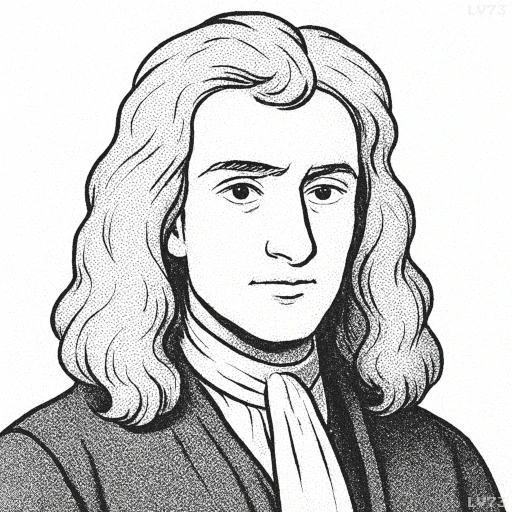“The word ‘God’ usually signifies ‘Lord’, but every lord is not a God. It is the dominion of a spiritual being which constitutes a God: a true, supreme, or imaginary dominion makes a true, supreme, or imaginary God.”

- January 4, 1643 – March 31, 1727
- Born in England (UK)
- Natural philosopher, mathematician, physicist, astronomer, theologian
table of contents
Quote
“The word ‘God’ usually signifies ‘Lord’, but every lord is not a God. It is the dominion of a spiritual being which constitutes a God: a true, supreme, or imaginary dominion makes a true, supreme, or imaginary God.”
Explanation
In this quote, Isaac Newton is exploring the meaning of the term “God” and the relationship between dominion and divinity. He points out that while the word “God” is often used to refer to a lord or ruler, not every lord can be considered a God. What distinguishes a God from a mere lord, according to Newton, is the dominion—the power or rule—of a spiritual being. This dominion is what grants a being true divinity, whether that dominion is real and supreme (as in the Christian God) or imaginary (as in gods worshipped in various mythologies or religions). Newton’s interpretation underscores his belief in the idea that the nature of divinity is tied to a being’s supreme dominion over the universe, which can either be seen as a true or imagined power.
Newton’s thinking here reflects the broader theological debates of his time. During the 17th century, there was much discussion about the nature of God, divinity, and the power of spiritual beings. Newton himself held a Christian worldview, but he was also influenced by the idea that reason and natural law revealed the workings of a divine creator. By emphasizing the concept of dominion as the defining feature of a god, he also implicitly differentiates between a real and imagined deity, suggesting that true divinity must be evidenced by a supreme and undeniable control over the world.
In modern terms, Newton’s quote engages with ideas around the philosophy of religion, where debates continue about the nature of divinity, the existence of gods, and the attributes that define a being as supreme. Today, his assertion could be interpreted in various ways depending on one’s religious or theological perspective. From a monotheistic standpoint, the true God is the Lord with ultimate dominion over the universe, while other deities or spiritual beings may represent lesser forms of power. Newton’s reflections point to the continuing philosophical and theological discussions around the relationship between power, authority, and divinity.
Would you like to share your impressions or related stories about this quote in the comments section?

